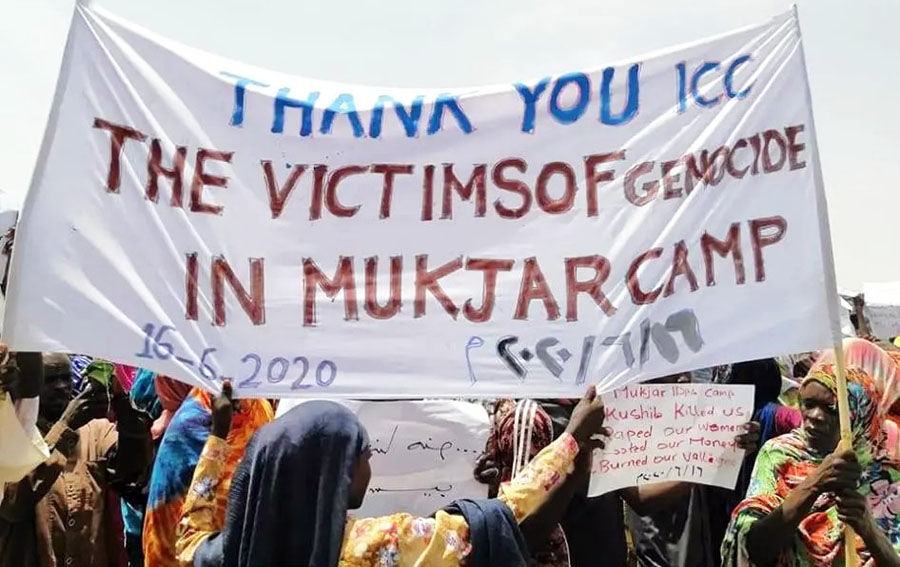
Human Rights Watch: Impunity Fuels Violence in Sudan
Moatinoon
The ongoing atrocities caused by rampant impunity and the accountability gap in Sudan require comprehensive justice responses, Human Rights Watch said today, two decades after the United Nations Security Council referred the situation in Darfur to the prosecutor of the International Criminal Court.
On March 31, 2005, the Security Council adopted Resolution 1593, granting the International Criminal Court (ICC) a mandate regarding crimes against humanity, war crimes, and genocide committed in Darfur since July 2002. The ICC’s investigations have led to several cases addressing crimes committed in the region between 2003 and 2013. But today, nearly two years after the current fighting began in April 2023, the ICC’s mandate remains limited to Darfur, despite serious abuses being committed throughout Sudan.
“The warring parties have once again trapped the Sudanese people in a cycle of violence fueled by impunity, committing horrific atrocities and creating the world’s worst humanitarian crisis,” said Liz Evenson, international justice director at Human Rights Watch. “Governments should publicly commit to exploring all avenues to close the accountability gap in Sudan, so that victims of today’s crimes don’t have to wait another two decades for justice.”
Since fighting broke out on April 15, 2023, between the Sudanese military and the Rapid Support Forces, both warring parties have committed war crimes, such as executing and mutilating detainees, and other serious violations of international humanitarian law, including in Khartoum, North Darfur, Al Jazira, South Kordofan, and West Kordofan states, according to Human Rights Watch research.
The Rapid Support Forces (RSF) committed crimes against humanity, including an ethnic cleansing campaign in West Darfur in 2023 and widespread sexual violence in areas around the capital, Khartoum, since 2023. The RSF and allied militias have also raped dozens of women and girls into sexual slavery in South Kordofan since September 2023.
In January 2025, the Prosecutor of the International Criminal Court (ICC) indicated that his office would submit requests for arrest warrants based on investigations into crimes committed since April 2023 in West Darfur. The 2005 UN Security Council resolution restricts the Courts jurisdiction to Darfur.
In its reports issued in September and October 2024, the UN Fact-Finding Mission documented international crimes committed throughout the country and called on the Security Council to extend the ICCs jurisdiction to all of Sudan. It also urged governments to utilize all available international justice options, including establishing an international judicial mechanism for Sudan and conducting trials under universal jurisdiction before domestic courts, to complement the ICCs work. The fact-finding mission also called on Sudan to cooperate with the International Criminal Court.
Human Rights Watch said that other countries should use this anniversary to publicly pledge to work together to implement the fact-finding missions recommendations and ensure intensified justice efforts in Sudan. Governments should ensure that accountability efforts are emphasized at the highest level at upcoming key meetings, including the EU Foreign Affairs Council on April 14, 2025, and the London High-Level Conference on Sudan on April 15. Accountability efforts should focus on Sudanese voices and draw on international expertise in national and international efforts, such as in Ukraine and Syria.
A verdict is still pending in the trial of former Janjaweed militia leader Ali Muhammad Ali Abd al-Rahman (Ali Kushayb) at the International Criminal Court (ICC) on charges of war crimes and crimes against humanity in Darfur in 2003, 2004, and 2013. However, 20 years after the Security Council referred the case, Kushayb remains on trial alone.
Following the ouster of Sudanese President Omar al-Bashir in April 2019, the transitional government, under a civilian-military power-sharing agreement, had the opportunity to ensure accountability for past human rights violations. The transitional government took limited steps toward accountability, but failed to prioritize accountability for serious human rights violations, and emerging legal reforms were halted immediately after the military seized power in 2021. The organization called on the Sudanese authorities to immediately surrender al-Bashir and those wanted by the court.
The organization called on ICC member states to ensure the court has the necessary resources to carry out its work. It called on all UN member states to urge the Security Council to support the courts mandate in Darfur, including by enforcing court decisions related to non-cooperation in arrests. It called on the Sudanese government to accept the courts jurisdiction throughout Sudan. “The referral of the Darfur case 20 years ago demonstrated what the international community can do to uphold justice as a fundamental element of international peace and security,” Evenson said. “Governments should draw on the experience of the past decades to find innovative paths to justice at the national and international levels to fulfill this 20-year promise.”

